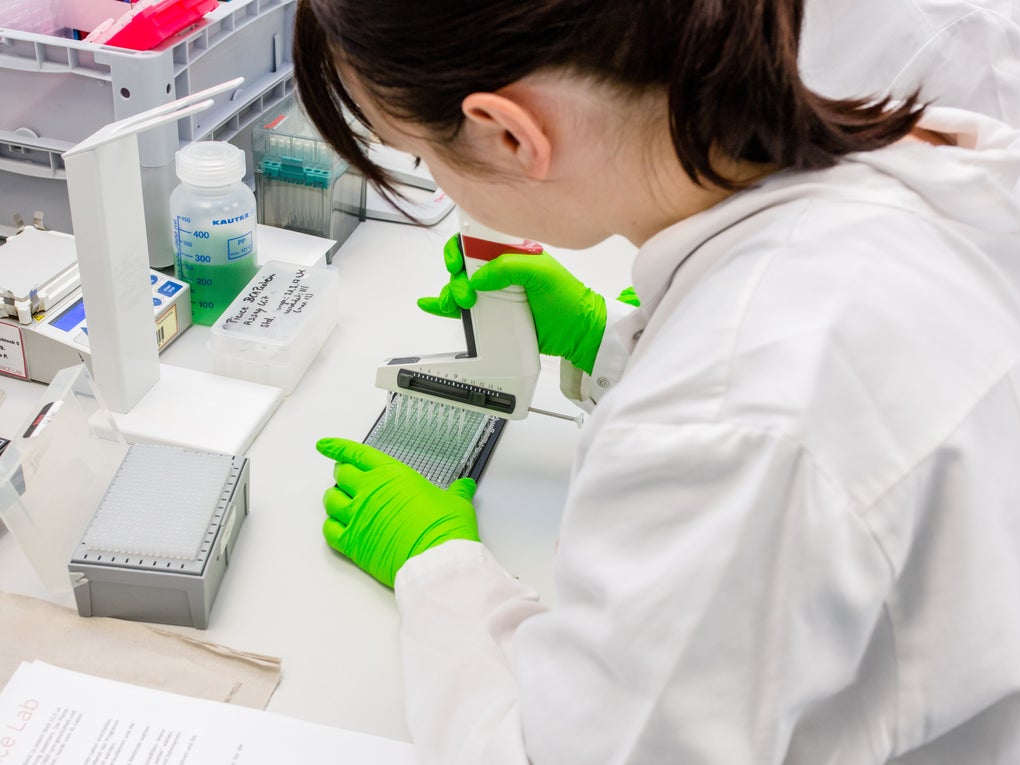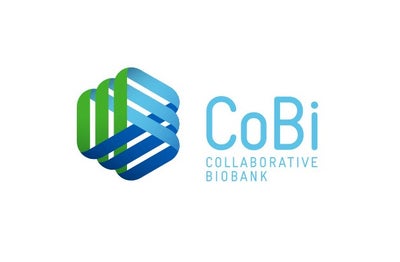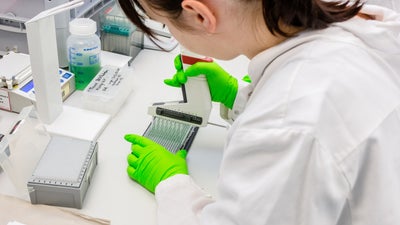
Clinical trials to ensure patients receive the best chance at survival
Numerous mechanisms in the development and combatting of the disease have not yet been explored, and there is a lack of studies on many blood cancer disorders delivering sufficiently robust results and treatment recommendations that could serve as guidance for doctors. Another crucial way of improving patients’ chances of survival is by optimizing existing therapies. This is an area in which fundamental research and scientific collaboration are of vital importance, both internationally and on an interdisciplinary level.
Established in 2013, the Clinical Trials Unit is designed for international cooperation within Europe, but also as a bridge to the United States. An experienced team of physicians, biologists, biochemists, mathematicians, pharmacists and psychologists works in close cooperation with international transplant registers as well as German and international research groups to achieve its goals.
All scientific projects pursue the goal of strengthening the cooperation between doctors and scientists in order to derive new treatment guidelines and future-oriented findings from the results of these studies. One example of a current research project is the examination of the role of natural killer cells (NK cells). NK cells occur in human blood and play a key role in fighting off virus infections and could be instrumental in combatting cancer cells as well. The proteins they display on their surfaces prevent them from killing off other body cells. But unfortunately, the same key for this signal is also found in many leukemia cells, so they avoid natural destruction too. If we use a treatment that interrupts the forwarding of the signal from the leukemia cell to the immune cell, it will override this protective function and the leukemia cell will be killed. This DKMS research project aims to study and compare the development of the NK cell repertoire in transplanted cells at various points after the transplant. It is hoped that the findings can be used to improve the selection of blood stem cell donors in the future.
Collaborative Biobank (CoBi)

One of the jobs of the Clinical Trials Unit is to manage the Collaborative Biobank (CoBi). Established in 2016, the Collaborative Biobank is a collaborative science platform providing resources worldwide for medical research projects in the field of blood cancer and blood disorders. Its cooperation partners include transplant centers, collection centers, and donor centers. What makes the Collaborative Biobank special is that it’s used to archive samples and data of matching blood stem cell donors and patients, something that only very few databases in the world currently offer. The participating centers and worldwide research groups can use these samples and data for research into the prevention, diagnosis, and treatment of blood cancers.
For more information about the Collaborative Biobank visit www.cobi-biobank.com.


